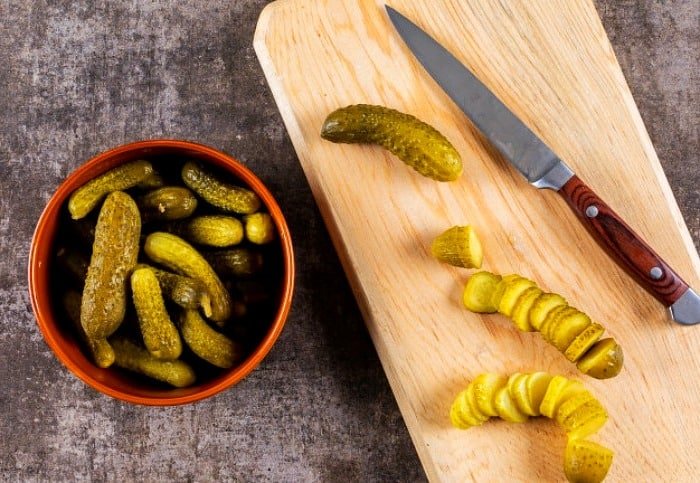ProbioticsWhat are they?
The idea of beneficial bacteria has become popular for years. We all useantibioticsto kill bacterial infections, and we also usesoapsand antibacterial lotions daily. Harmful bacteria in the wrong place can be damaging, but beneficial bacteria can have many advantages; this is where probiotics come into play. Probiotics are live microorganisms that can prevent and treat diseases. They can also provide us with a healthy digestion and immune system. These probiotics are also known as good bacteria that enter our body through drinks, dietary supplements, and foods.
What are the health benefits of probiotics?
Probiotics have recently entered the food and supplement industry, but they have been with us since the beginning of our production. When a baby is born, they receive bacteria such as E. coli, Bifidobacterium, and Lactobacillus from their mother during the birth canal. These bacteria are not passed during a cesarean section, which is why babies born throughcesarean sectionare more prone toallergiesand have weaker immune systems.
Probiotics work in our body in two ways. First, they improve our digestive system, which needs a balance between good and bad bacteria. Poor food choices,stress, lack of sleep, overuse of antibiotics, and other medications can all disrupt this balance of bacteria, and that’s where probiotics come to our rescue.
When the digestive system functions well, it acts as a filter against harmful substances like toxins, harmful bacteria, chemicals, and other waste fromfoodand studies have shown that the benefits of using probiotics for treatingdiarrhea, stomach pain, bloating, infections, andfatty liver diseaseare very significant.
Another effect of probiotics is on the immune system, which protects our body from germs. When it does not work properly, a person may suffer from allergic reactions, immune disorders, and skin infections.
What foods contain probiotics?
Yogurt:
Yogurt contains various beneficial bacteria that can improveType 2 diabetes, cardiovascular diseases, allergies, respiratory issues, as well as dental and bone health.
Other foods like milk,soft cheese,bread,soy,vegetables, andpicklesalso contain probiotics.

Kefir:
Kefir made from cow’s milk has high probiotic content and is also found in grains containing yeast probiotics, which can improve infections, digestive problems, and bone issues.
Cooked shredded cabbage:
This food contains lactic acid and is one of the oldest traditional foods in many countries, especially Europe. Besides being high in fiber, it contains iron, vitamins C, B, and K.
Kimchi:
Kimchi is a well-known Korean dish, very spicy, made from various vegetables such as cabbage, and flavored with garlic,ginger,,hot pepperand salt. Kimchi also contains lactic acid bacteria that improve digestion.
Green tea
is also a beneficial drink that contains bacteria and yeast, consumed in many parts of the world and has high probiotic content.
Pickles
are cucumbers placed in water and salt, containing lactic acid bacteria that can improve the digestive system. It’s low in calories and contains essential nutrients and vitamin K.

How should probiotics be consumed?
It is essential to remember that all microorganisms are different, and while consumption is one part of the equation, you must also keep in mind that these bacteria can survive in your body. Therefore, it is best to leave this choice to a doctor so they can prescribe the right dose and type of probiotics for you.
Signs of excessive probiotic consumption
Bloating
Bloating is one of the most common side effects of taking excess probiotics. Bloating occurs when excess gas builds up in your stomach, making it feel large and swollen, and you can feel tension when touching it.BloatingBloating is also accompanied by pain and discomfort.
Gas
Gas and bloating usually go hand in hand. The digestion process naturally produces gas, with an average daily gas production ranging from 13 to 21 times. This gas is created due to swallowing air or breaking down foods with bacteria, and of course, when the bacteria are digested in your body, they release gas; the production increases if you consume high-fiber foods simultaneously.

Diarrhea
Diarrhea occurs due to watery and loose bowel movements that happen frequently. Diarrhea might also be accompanied by abdominal pain, bloating, andnauseaoften lasting one to two days, usually caused by foods containing harmful bacteria or viruses, which can also be another reason for diarrhea: an overdose of probiotics.
Abdominal pain
All of the above can be accompanied by abdominal pain, which can present as sharp pains, cramps, and stiffness in the abdomen.

How to reduce the side effects of probiotics?
If you experience any of the above when consuming probiotics, do not stop taking them entirely. Reducing the amount you consume is one of the best ways to alleviate discomfort and side effects; try to gradually reduce your intake until it reaches half, allowing the severe symptoms to diminish over time.
In addition to reducing the dose, you should also remember the following tips in this health section onSelMagz:Probiotics should be taken on an empty stomach:
Probiotics produce more gas when taken with food. Taking them on an empty stomach multiplies their benefits. Try to take them half an hour before meals. If you still experience digestive issues, take this supplement before bed.
Drink plenty of water:
Many stomach and intestinal problems occur due to dryness and dehydration. Keeping the body hydrated can speed up digestion and protect you from dehydration and diarrhea.
Be patient. It might take two weeks for your body to adjust to taking probiotics.
If, after following all these tips and reducing your dose, you still have issues, it is better to stop consuming probiotics.
Probiotics







